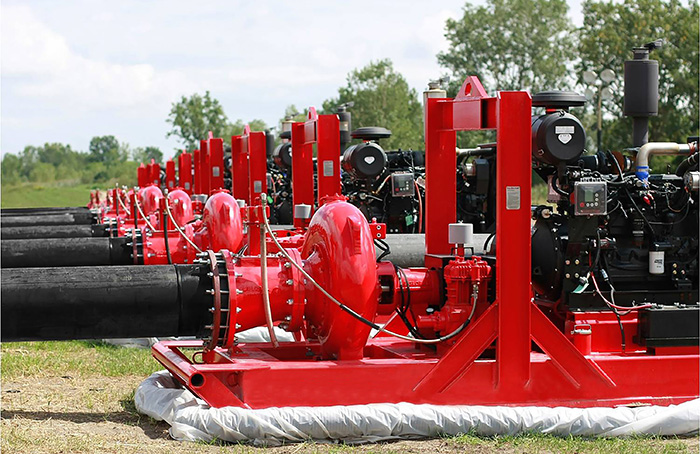The fall has been a weather siege. Hurricane Harvey pummeled Texas and left it covered in water and misery. Irma ripped through Puerto Rico and the islands, and poured floods across the Florida Keys. Maria, Jose and Katia left more devastation in their wakes. Rescue workers came, police and fire and the U.S. National Guard. And so did the dewatering industry—an unheralded first responder—rushing to dry things out. And help those suffering return to normalcy. Harvey was only a Tropical Wave on Saturday, Aug. 19. It powered into a Category 4 before making landfall in Texas near Corpus Christi on Aug. 25, causing torrential rainfall and major flooding in Houston and the surrounding area. “Harvey jumped on us quick,” said Robert Cloud, regional sales manager for dewatering solutions at Godwin, a Xylem brand. “We didn’t have three weeks. It hopped up in the south part of the Gulf on a Monday. There wasn’t a whole lot of time to really prepare in the sense that you had a few weeks to know about it.” Cloud is based in Grand Prairie, Texas, near Dallas-Fort Worth. Godwin has a branch in Houston, so employees also had to protect themselves, their families, and their own homes. Godwin received calls from the affected areas and, like its competitors in the pump industry, had to react. Their team set up a staging area in San Antonio. “By Friday, we were getting a lot of calls in Corpus Christi and Houston,” Cloud said. “By Saturday morning, we had exhausted every bit of our dewatering pumps in Texas.”
 Image 1. One of 64 pumps sent to Houston following Hurricane Harvey. Image courtesy of Mersino
Image 1. One of 64 pumps sent to Houston following Hurricane Harvey. Image courtesy of MersinoTransitioning to Irma
David Perry, Thompson Pump’s municipal sales manager, said his Port Orange, Florida-based company sent approximately 50 pumps to Texas for Harvey. That reduced the availability when Hurricane Irma hit. A total of about 60 to 80 pumps from Thompson were mobilized in Florida before the storm hit, and 50 more were added. Locating and distributing enough equipment was the biggest challenge following the storm. Perry said many of Florida’s municipalities are well-equipped and do a good job replenishing their fleet..jpg) Image courtesy of Godwin, a Xylem brand
Image courtesy of Godwin, a Xylem brand
